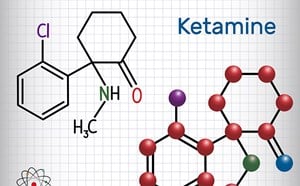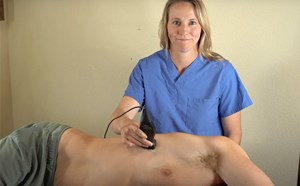
Message from the Chair-Elect
Dear Section Colleagues,
A brief note to tell you all how proud I am to be affiliated with this esteemed group. You all amaze me. The number and diversity of projects underway by members of this section is simply mind-blowing. The app, webinars, live training, and advocacy on ALTO and the harm-reduction front is nothing but phenomenal. I am equally amazed with the folks working on the addiction side. For example, the E-QUAL Network Opioid Project has multiple doctors producing some top quality, cutting edge webinars on a range of topics, from improving opioid withdrawal management, and beginning treatment for OUD in the ED, to improving pain management in patients with OUD (it comes full circle). Furthermore, those same docs are providing education in multiple other venues as well, outside of ACEP, in lectures, journal articles, podcasts, and education for the lay public. Clearly, events in our country, at the time of the formation of this section, demand our intensive time and energy, but I am no less blown away by the selfless dedication to the cause displayed by our members in this first year. There are too many names to list, but I will ask you all to stand up and pat yourselves on the back, or just lean back, smile, and know that your colleagues appreciate all the work you do. There is no doubt that the work you are doing is saving and transforming lives. On that note, I must give a shout out to the wonderful ACEP staff, who seem to be wholly devoted to our section: Margaret Montgomery, Dr. Sam Shahid, Riane Gay, and Mari Houlihan (I am sure I left someone out.)
On July 24th, at the annual ACEP/EMF Corporate Council Meeting in Dallas, I was tasked with giving a seven-minute presentation on the status of the opioid addiction epidemic and an overview of the work done (just on the addiction side) by the PM & AM Section (Dr. Mark Rosenberg covered ALTO). It was very challenging to try to pack it in, because there is so much you all are doing! It was an honor to speak on behalf of the section, but with limited time, I could highlight just a few programs, such as the E-QUAL Network Opioid Project, Andrew Herring’s ED Bridge project, and the work of the Yale group (and the multiple studies they have underway). What is the ACEP/EMF Corporate Council Meeting, you ask? To be honest, I had not heard of this meeting before this year. This is an event ACEP and the Emergency Medicine Foundation (EMF) host for industry to woo donations, primarily for EMF to fund research and for ACEP educational events. Addressing the opioid epidemic touched on many dialogues at the conference, whether in discussion with pharmaceutical companies or ultrasound machine manufacturers. The corporate reps present seemed very engaged and hopefully were convinced to make “directed grants” to EMF to get specific questions answered. EMF then identifies and funds academic EM projects designed with proper academic rigor to answer those specific questions. I would encourage all the researchers in the section to stay in touch with EMF, as funds for your pain management or addiction related project may be available. Again, the time is now - we must keep up this valuable work.
I have some exciting news about the ED Information Exchange (EDIE). Some of you practice in states such as Washington, where the EDIE is already up and running, integrated into your ED information system. In those states, the Medicaid office is saving money, and your docs are alerted to high ED utilizers, especially those receiving a high volume of controlled substance prescriptions. Some states, such as New Mexico and Alaska, are hindered in the success of the EDIE, because the Indian Health Service (IHS) does not participate (nor does the Veterans Administration (VA) or Department of Defense). That is about to change. Anne Zink, Steve Anderson, and I have made great progress working with the VA (hats off to Chad Kessler, the national VA EM medical director), and are making progress with IHS at the national level, as well. The turning point came after enlisting the full support of Senator Murkowski of Alaska, the chair of the IHS budget committee, and Senator Tom Udall of New Mexico, ranking Democrat on the committee (and that all happened at ACEP LAC 2018). The VA will pilot EDIE participation in New Mexico and Washington, and we expect that IHS will follow suit. Advocacy makes an impact!
I would like to finish with a personal note. I will confess that while working as a full-time ED pit doc and maintaining an opioid addiction practice, at times (OK … a lot of the time) I find keeping up with the work of this section exhausting. However, I was seeing patients in my clinics this week, and I was inspired to hear that several of my patients were referred from the ED. One of my patients was so grateful that when she went to the ED suffering in terrible opioid withdrawal, she received 16mg of buprenorphine SL, no IV sticks, and she got rapid relief which lasted her two days (and she didn’t use again before coming to the clinic). She felt that the ED doc wasn’t judgmental, and the social worker who provided the information about my clinic was compassionate and encouraging. This is the first time this patient has ever sought treatment for her OUD, and the system worked well. She now has hope! The next day I saw three patients (two men, one woman) in follow up who have been receiving MAT for a month now, and they all looked great (well rested, good hygiene, well dressed, etc.), and all had clean urines (except for marijuana, of course – a topic for another day). They have stayed out of the ED, out of jail, and they all have jobs now. They all stated they haven’t felt so well physically, or emotionally, in years. They all have hope for their future!
Again, you all are making a tremendous difference. Keep up the amazing work!
Eric Ketcham
MD, MBA, FACEP, FASAM, FACHE


